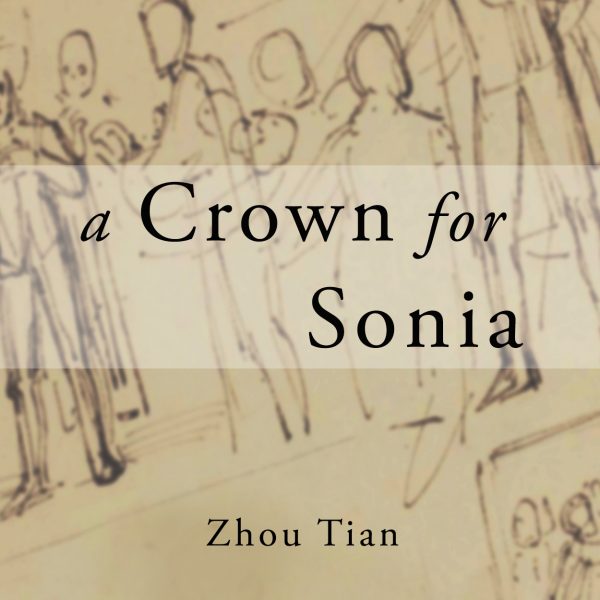
A Crown for Sonia
Two songs for voice, cello, and piano
(2008) | 11 minutes
Commissioned by the University of Southern California Composer/Writer Collaborative Program (A Crown for Sonia), and Ana Guigui (Come Walk with Me, and I Will Tell)
SCORING voice (medium or high), cello, piano
PREMIERE
Ainsley Soutiere, soprano;
Xian Zhuo, cello; Zhou Tian, piano
12 May 2008, Alfred Newman Hall, University of Southern California
Listen
A Crown for Sonia
Ainsley Soutiere (voice), Xian Zhuo (cello), and Zhou Tian (piano). Live at Alfred Newman Hall, University of Southern California. ©All rights reserved.
Programme Note
A Crown for Sonia is a set of two songs for voice, cello and piano.
The title piece came from a collaboration with Seth Michelson, whose bilingual heroic crown of sonnets about the genocide in Argentina (1976-1983), “A Crown for Sonia,” was set to original music. The piece won first prize at the 2009 ASCAP and Lotte Lehmann Foundation Art Songs Competition.
Come Walk With Me, and I will Tell is based on selections from The Song of the Stone Wall by Hellen Keller
TEXT
A Crown for Sonia
Seth Michelson
My wife’s family fled Argentina
a tiros de bala, los milicos
firing shots at them, bullets sizzling
past their ears. Así the family, five in all,
two parents con sus pibes, ran in tears,
death be not proud, my wife was nine, her
siblings littler. Behind, they left a dog, ferns
unwatered, plates in the sink, stuffed animals
forever silent on children’s beds, forever.
Here now, my wife’s mother, una brava
científica, teaches cowgirls to swap
shotguns for lives in cancer research,
y mi suegro, a scientist, too, plays Bach on piano,
explaining, note by note, Yo no fui un desaparecido.
Glossary
así: “like this”
brava: “brave”, “strong”, “fierce”
científica: “scientist”
desaparecido: “disappeared”; used as a verb, the word refers to the process by which the military forcibly “disappeared” people during the genocide in Argentina (1976-1983); used as a noun, the word refers to the people who disappeared during that time, most likely after being kidnapped, tortured, and murdered by members of the Argentine military; the symbolic figure for the number of desaparecidos (“disappeared” people) in Argentina during the genocide is 30,000; in the poem, the line “Yo no fui un desaparecido” is a claim of defiance against the fascists meaning “I wasn’t disappeared” or “They didn’t manage to disappear me!”
milicos: a common term of derision for members of the Argentine military during the genocide; the vehemence of the derision depends upon the context and inflection of the noun in its delivery.
pibes: “children”, “kids”, the term is a colloquial, tender, and somewhat dated Argentine word, and here “con sus pibes” roughly means “with their kids” or “with their children”
suegro: “father-in-law”
tiros de bala: “gunshots”
—
Come Walk with Me, and I Will Tell
Hellen Keller
Come walk with me, and I will tell
What I have read in this scroll of stone;
I will spell out this writing on hill and meadow.
It is a chronicle wrought by praying workmen,
The forefathers of our nation–
Leagues upon leagues of sealed history awaiting an interpreter.
This is New England’s tapestry of stone
Alive with memories that throb and quiver
At the core of the ages
As the prophecies of old at the heart of God’s Word.
The walls have many things to tell me,
And the days are long. I come and listen:
My hand is upon the stones, and the tale I fain would hear
Is of the men who built the walls,
And of the God who made the stones and the workers.